This is Jeremy, an exotic parrot. I adopted him 31 years ago. He is a Moluccan, or Salmon-Crested Cockatoo, and he will be 32 years old in June.
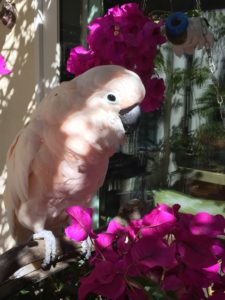
He’s smart, he mimics language and “talks” to the extent that he says things when he “knows” it is the right time to say it.
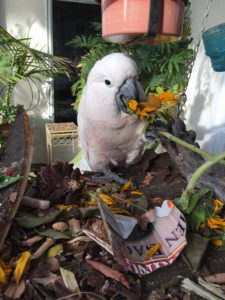
Certain phrases have tone, which I anthropomorphize as meaning. (I know I do, so it’s ok.)
An example is when Jeremy-the-Bird says, “I love you.” He says it in the same sweet, song-song way that I say it to him.
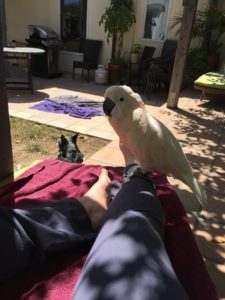
When I say “I Love You,” to Jer, I mean it. However, I recognize that I do have variability in how MUCH of different kinds of love I’m meaning at each moment:
I love that you love me, and I feel that bond.
I love how you entertain me.
I love how beautiful you are.
I love how smart, healthy, and fun you are.
I love that I can care for you.
Jeremy learns the words and the difference in tone. Whether he “means” I Love You the way I do or not, he doesn’t scream it at the top of his lungs when he’s hungry, bored, or frustrated. He says it to me. Sometimes in a way that sounds plaintive, to get my attention. Sometimes he says “I love you,” and I know it means, “spend time with me! Pay attention to me!”
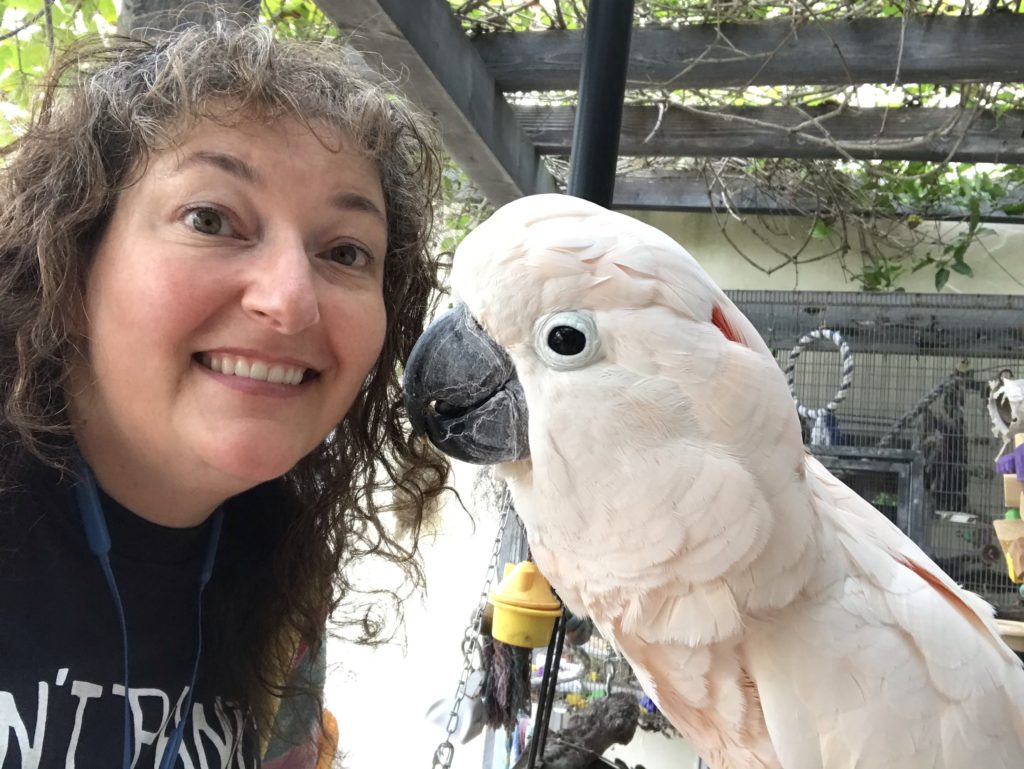
People say they learn from their animals: how to give and receive unconditional love, live in the moment, enjoy life. Today my talking parrot taught me who I really, REALLY am. Down at my core.
Because he talks to me.
He repeats me.
Jeremy says to me what I say to him most often:
“Hiiiii!”
“How are you doing?”
“Whasssssuuuuuuup!”
“Uh, huh. Okay.”
“Hello, Jeremy Bird.”
“I lu-uuhhhhve you!”
Today I walked into Jeremy’s room and he said, “Hi! How are you doing?” And I swear he meant it.
And I thought, “I’m okay. A little harried, a bit behind, but healthy and hopeful.”
And I said as I walked into the kitchen, continuing my task the way I would with my spouse, colleague, or friend, “I’m good, how are you doing?”
His answer was to come to the side of his cage where he can see me in the kitchen, and watch me, hoping I will see him, spend time with him, entertain him, love him. “How are you doing?”
This time, for whatever reason, I really listened to his question.
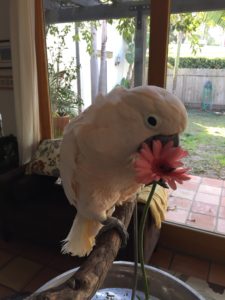
The phrases my bird uses when I walk in his room are polite.
They are intended to engage.
They show interest and willingness to communicate.
They are about caring, listening, and love.
He wouldn’t know those phrases, he wouldn’t have learned those words, in that order, with minute inflection, unless I said it all the time. Unless I said those things to him, the dog, my spouse, my friends, they would not be the birdsong of his life, his flock. They would not be the words he has learned.

He’s a living, breathing, nesting, molting, preening, pruning, cuddling, sounding-off, reflection of me. And if what he says is true, I’m suddenly, (quite unexpectedly) aware that I am an engaging, caring, loving, person, giving and receiving attention as best I can in this often confusing world.
How are you doing?
What do you think?